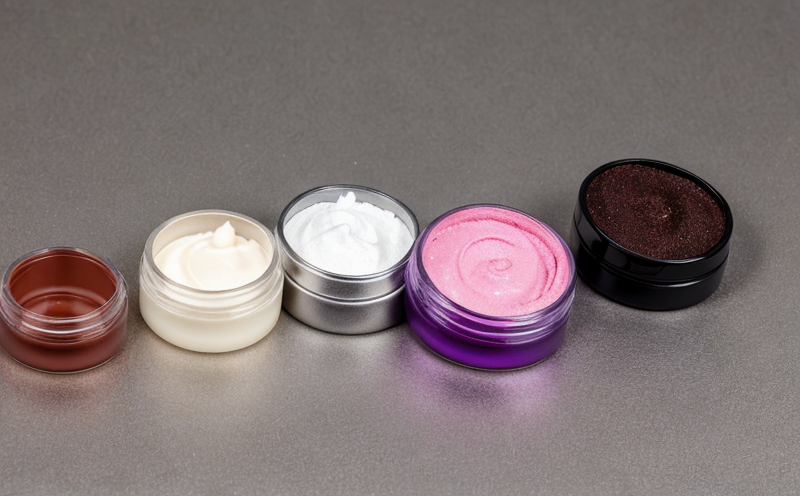Resistance to Chemical Reactions in Closure Materials for Cosmetics
The Importance of Resistance to Chemical Reactions in Closure Materials for Cosmetics A Laboratory Service That Sets Your Brand Apart
In the competitive world of cosmetics and personal care, businesses are constantly seeking ways to differentiate themselves from their rivals and maintain a loyal customer base. One crucial aspect that can make or break a products success is its closure materials ability to withstand chemical reactions. Resistance to Chemical Reactions in Closure Materials for Cosmetics (RCCMC) is an essential laboratory service that ensures the integrity of your packaging and products.
At Eurolab, our RCCMC testing services help you identify potential issues with your closure materials before they hit the market. By investing in this crucial step, you can avoid costly recalls, maintain brand reputation, and stay ahead of the competition. In this article, well delve into the importance of RCCMC, its benefits, and how Eurolabs laboratory service can support your business.
What is Resistance to Chemical Reactions in Closure Materials for Cosmetics?
RCCMC refers to a cosmetic products ability to withstand chemical reactions that occur between the product and its closure material. This includes interactions between the product, packaging, and dispensing components. When these reactions occur, they can lead to a range of issues, including
Package leakage or rupture
Contamination of the product or packaging
Discoloration or degradation of the product or packaging
Loss of efficacy or potency
These problems not only compromise the products performance but also damage your brand reputation and potentially harm consumers.
Why is RCCMC Essential for Businesses?
The consequences of neglecting RCCMC can be severe, including
Product recalls If a product fails to meet regulatory requirements or poses a risk to consumer safety, you may need to recall it from the market. This can result in significant financial losses and damage to your brand reputation.
Compliance issues Failure to test for RCCMC can lead to non-compliance with regulations, such as those set by the FDA, EU Cosmetics Regulation, or other relevant authorities.
Loss of customer trust When products fail to meet expectations, customers lose faith in your brand. This can be difficult to recover from and may result in decreased sales and market share.
To avoid these risks, businesses must prioritize RCCMC testing as part of their product development process.
Advantages of Using Resistance to Chemical Reactions in Closure Materials for Cosmetics
Here are the key benefits of using Eurolabs RCCMC laboratory service
Benefits for Product Developers
Ensure regulatory compliance Our testing services help you meet regulatory requirements, reducing the risk of non-compliance and product recalls.
Improve product performance By identifying potential issues with closure materials, we can help you optimize your products performance and ensure they meet customer expectations.
Minimize costs Investing in RCCMC testing upfront can save you money by avoiding costly redesigns, production delays, or product recalls.
Benefits for Manufacturers
Protect brand reputation By ensuring the integrity of your packaging and products, we help maintain your brands reputation and prevent potential damage to your customer base.
Enhance customer satisfaction Our testing services ensure that your products meet high standards of quality, leading to increased customer satisfaction and loyalty.
Stay competitive In a crowded market, RCCMC testing sets you apart from competitors who may not prioritize product integrity.
Benefits for Regulatory Affairs
Streamline compliance processes Our laboratory service simplifies the compliance process by providing clear, actionable data that helps you meet regulatory requirements.
Reduce risk of non-compliance By identifying potential issues early on, we can help you mitigate risks and avoid costly fines or penalties.
Improve efficiency Our testing services enable you to focus on product development rather than navigating complex regulatory landscapes.
Benefits for Quality Control
Ensure quality standards Our RCCMC testing helps ensure that your products meet established quality standards, reducing the risk of contamination or other quality control issues.
Verify material compatibility We test closure materials for compatibility with your products, ensuring a seamless interaction between packaging and contents.
Identify areas for improvement By analyzing our test results, you can pinpoint potential weak spots in your product development process and make targeted improvements.
Frequently Asked Questions (FAQs)
What types of closure materials are tested for RCCMC?
We test a wide range of closure materials, including caps, lids, pumps, sprays, and other dispensing components used in cosmetic packaging.
How do I prepare my products for RCCMC testing?
Contact us to discuss the specifics of your product and packaging requirements. Well provide detailed instructions on how to prepare your samples for testing.
What are the typical turn-around times for RCCMC testing?
Our laboratory services typically take 7-14 business days, depending on the type and scope of testing required.
Can I request customized testing protocols or methods?
Yes! We can develop customized testing protocols to meet your specific needs and requirements.
How do I receive the test results and reports?
Youll receive a comprehensive report detailing our findings, along with any recommendations for improvement.
Conclusion
In conclusion, RCCMC is a critical aspect of cosmetic product development that requires careful attention to ensure the integrity of packaging and products. At Eurolab, we offer a range of laboratory services designed to support your business in meeting regulatory requirements, maintaining brand reputation, and staying ahead of the competition. Dont risk compromising your products performance or damaging your brand reputation invest in our RCCMC testing services today!




